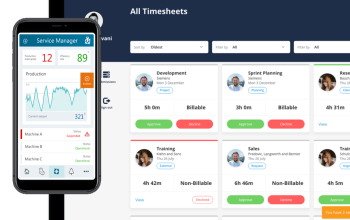There are countless benefits to IOT. The ability to gather real-time data from a wide range of devices allows for better decisions, reducing costs, and enhancing asset utilisation. As more devices are connected to the Internet, it becomes possible to identify potential problems before they even occur. The importance of IOT is unquestionable, and it promises to make our lives better. Let’s examine some of those benefits.
Businesses can use IoT to make their premises smarter, more efficient, and more customer-friendly. For instance, IoT technology enables enterprises to place sensors at their premises to send alerts when something is out of place. Using IoT can add another layer of protection and peace of mind. It can improve the way people travel and coordinate transportation. For example, sensors that monitor the weather and alert people to traffic congestion can reroute vehicles if they are delayed or stalled.
The importance of IoT is clear: connected networks can help automate tasks. For example, IoT connected devices can automate home appliances, like thermostats. This will cut down on energy bills and make work easier for employees. In an emergency, IoT-connected devices can help people find and save themselves. These benefits are just a few of the many benefits of IoT. The advantages of IoT are far too numerous to ignore!
IoT can transform the way businesses function. For example, a retailer’s warehouse can send pings to a stock order system, while a food processing plant can use IoT software to alert it when temperatures are outside of their optimum storage conditions. It can also improve a warehouse’s efficiency and reduce expenses. And IoT can even improve the customer experience by reducing lines, improving in-store layout, and providing personalized discounts based on customer loyalty.
As the transportation sector begins to undergo a transformation, IoT applications will likely become a significant part of the mix. Increasingly, the mix of technologies used in vehicles is expected to shift towards hybrid, electric, and hydrogen based vehicles. In addition to improving efficiencies, IoT in transportation is expected to improve safety and security. The future of transportation technology is only just beginning, and this is a vital area of research.
Cities need smart, connected systems to provide efficient service. City citizens rely on effective security and transportation systems. Effective city systems can optimize costs and scale up security, which will improve public safety and well-being. By 2020, IoT will have 50 billion connected devices, and a trillion-dollar market. So, if you’re thinking of building a smart city, the IoT may be the perfect solution. So what are the benefits of IoT?
Energy efficiency and power management: The use of IoT technology in smart power management can provide valuable benefits to power providers and consumers alike. For example, smart power management may enable the use of different load strategies in the face of fluctuating renewable energy sources. This technology can help utilities improve their efficiency and reduce their costs. So, IoT is a powerful tool for improving the efficiency and reliability of energy grids. So, it’s not surprising to see how many different ways it can benefit the energy industry.




